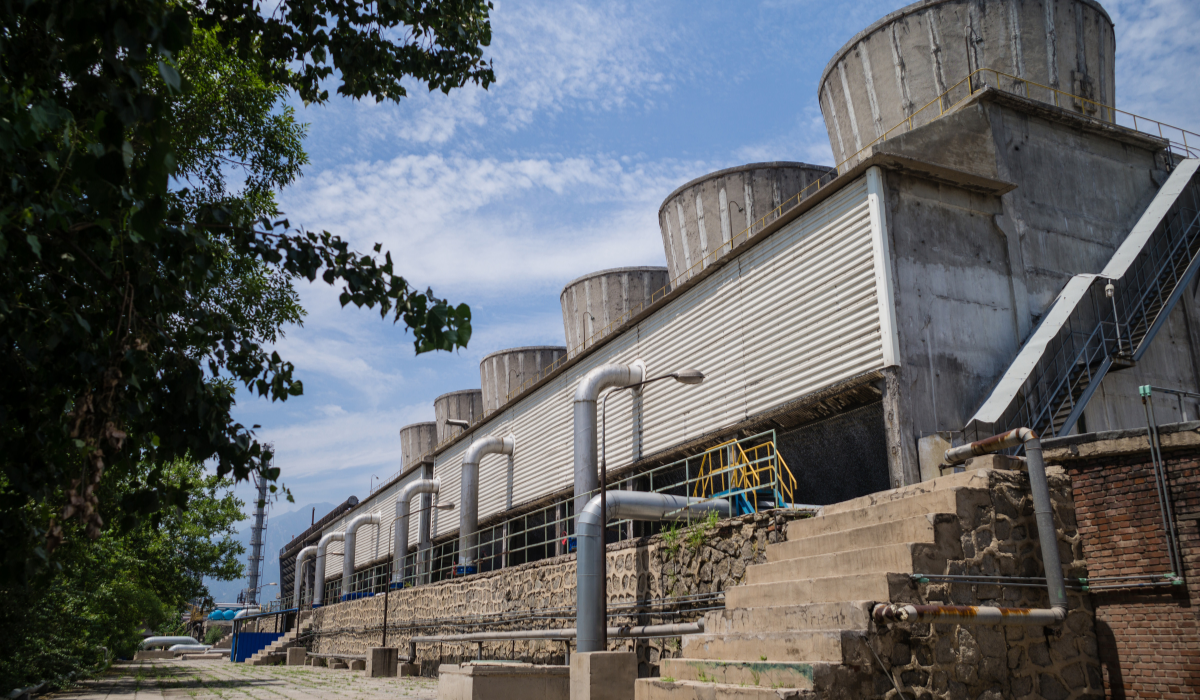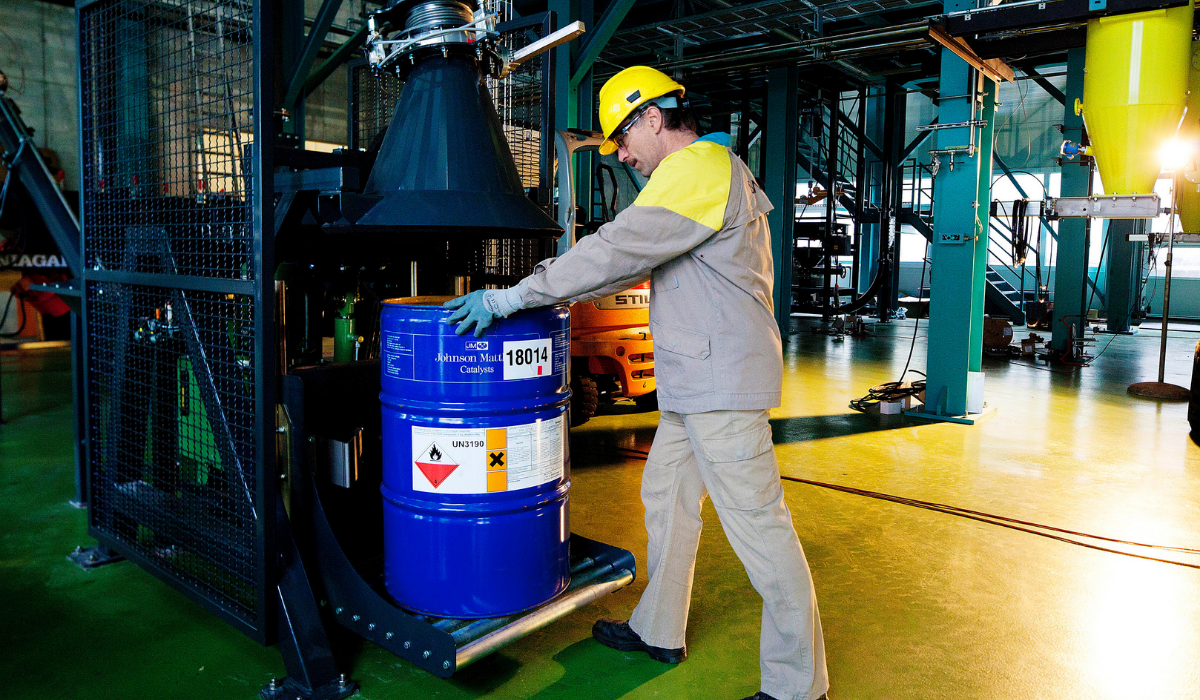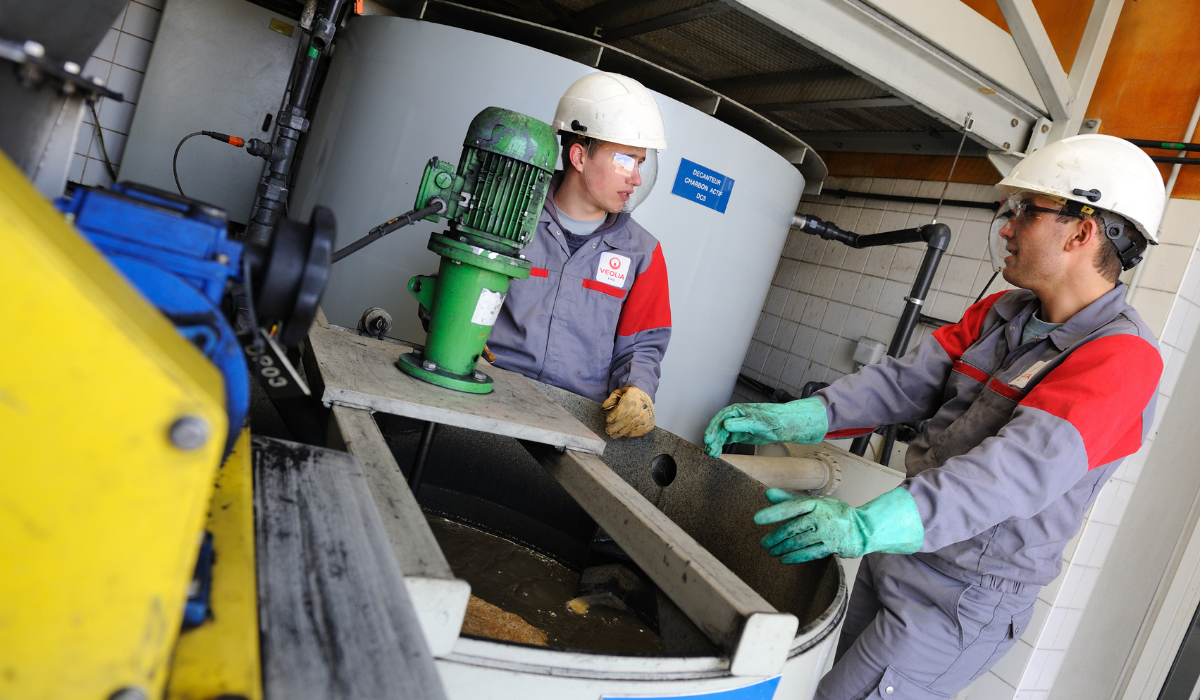Water treatment for cooling towers is critical. Cooling towers are integral pieces of equipment to many businesses today, allowing them to remove heat from their environments to cool down their buildings and processes. These specialised heat exchangers run on the principles of water-cooling methods. As a result, they need proper water treatment in order to keep costs down, maintain high cooling efficiencies and remain legally compliant.
How do cooling tower systems work?

Cooling tower systems are used to remove heat from both utility and manufacturing processes. As a result, plants can operate more efficiently and reliably, whilst providing safe conditions for workers with an optimal cost of operation.
They are able to do this by circulating large quantities of water around a circuit. Cooling water passes through a heat exchanger where it absorbs heat from the plant’s processes and rejects it from the cooling tower via evaporation. At this point, some of the water evaporates and the air will carry the heat with it through the cooling tower and into the atmosphere.
This leaves behind the cooling water along with some residual dissolved minerals. The remaining cooled water, alongside additional make-up water, is then circulated through the system thus repeating the cycle. As more and more water evaporates, the concentration of minerals increases and eventually reaches their saturation points, beginning to precipitate and deposit; rendering the water less stable.
Why is cooling tower water treatment necessary?

As mineral concentration in the cooling water increases, a number of different problems can occur. Firstly, the likelihood of corrosion increases. If this reaches the heat exchanger, it won’t perform as expected and will reduce the overall efficiency of the plant. This causes costly downtime and possibly the replacement of the equipment if not properly managed.
In addition, scaling will result in the precipitation of hard, dense deposits on the heat transfer surfaces, piping and cooling tower fill pack. This will reduce the overall efficiency of the cooling system and increase the cost of operation.
Finally, a higher mineral concentration level increases the risk of biological fouling, which often harbours into low flow areas and blocks strainers and nozzles. This in turn will promote the formation of biofilms, which encourages exponential microbial growth. Warm and damp conditions in the cooling system provide an ideal environment for bacteria to proliferate. If left uncontrolled, these microbes can multiply and spread throughout the cooling system, inhibiting flow and heat transfer. It can also pose an increased risk of Legionnaires’ disease to workers.
As such, it is paramount that operators are able to control their water mineral concentration so that systems can run at maximum efficiency. In doing so, operating costs can be reduced while ensuring safe working conditions. This can be achieved only by limiting the mineral concentration by blowdown and with the right chemical treatment.
Finding the right solution

The selection of an appropriate chemical treatment programme is paramount but very case-specific. Consequently, the key is to perform an in-depth plant survey, conducted by knowledgeable water treatment professionals who can tailor a specific water treatment solution to fulfil your needs. At Veolia Water Technologies UK, we have the expertise and experience to select the most appropriate chemical regime. With thousands of chemical products, we offer operational and mechanical solutions to reduce corrosion, scaling, fouling and microbial growth, to achieve cost-effective results whilst protecting your equipment.
Read more about our work with water cooling towers, here